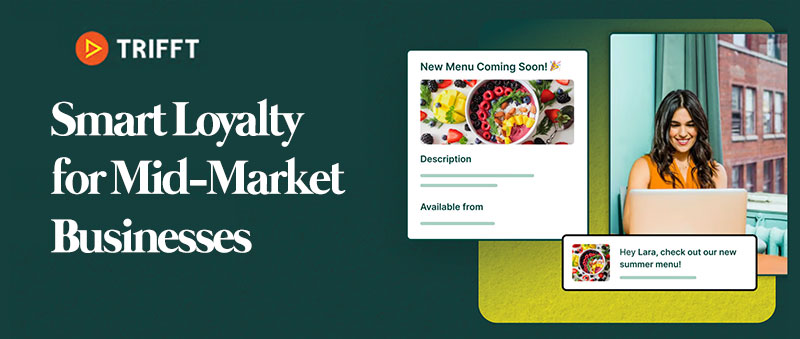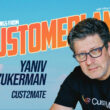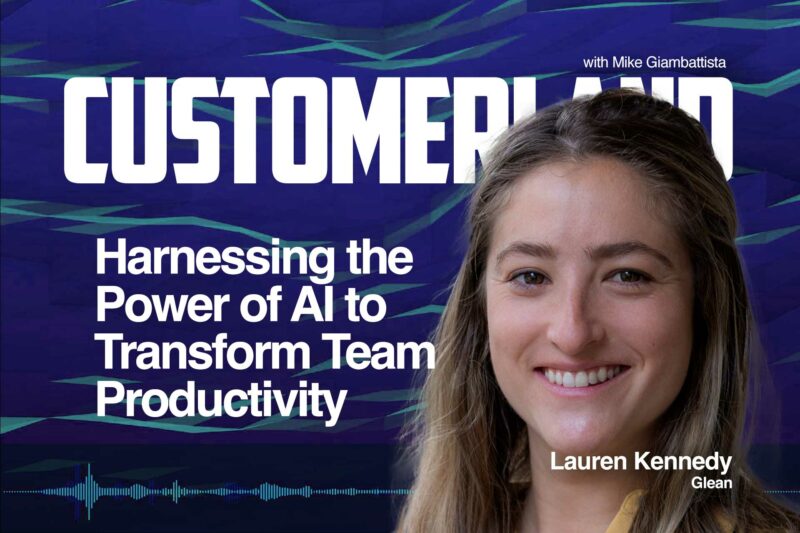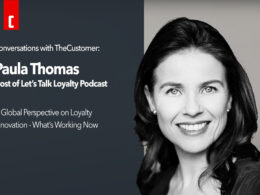In this episode, we’ll be talking with Lauren Kennedy from Glean about the company’s AI-powered search engine and its impact on organizational knowledge access. Lauren, who plays a key role in customer success at Glean, will give us an insider’s view of this technology. We’ll discuss how Glean’s search engine can provide real-time answers to complex questions, integrate smoothly with common workplace applications, and offer personalized responses based on roles and permissions. The aim is to understand how Glean is improving information retrieval and enhancing the customer experience with its tailored support.
Finally, we’ll delve into what the future holds for Glean in the realms of AI and search technology. Lauren will share insights into the potential of a no-code AI platform and how Glean is evolving into a virtual work assistant, promising increased workflow efficiency and automation. This episode aims to give a glimpse into the future of AI integration in everyday tasks, with Glean at the forefront. Join us to learn more about these exciting developments in knowledge management.
This episode of Customerland is sponsored by

Read the full transcript of the conversation below
Mike Giambattista
Today I’m honored to be speaking with Lauren Kennedy, who’s head of customer success at Glean and, side note, she is a fellow JMU alum. Lauren, thanks for joining me. Yeah, Go Dukes!
Lauren Kennedy
Yeah.
Mike Giambattista
Especially this year right.
Lauren Kennedy
It’s been a fun year. Yeah, it’s been a really fun year for sports over at JMU and Harrisonburg.
Mike Giambattista
Yeah, it’s a different era from when I was there, but that was a long, long time ago. Yeah, so Lauren heads customer success at Glean. I think the first question would be what is Glean? For those who don’t know? So you could give us a little bit of background on what Glean is and does. And then I think, just because it’s a unique idea, what you do there is head of customer success.
Lauren Kennedy
Yeah, absolutely so. Glean is the work assistant that helps you do your work just more efficiently and more effectively. Underneath everything with Glean is our search engine, which is AI-powered. It has access to the real-time info and documents and content that folks have access to in the organization across hundreds of different apps Slack, salesforce, Microsoft 360, all the Google Workspace. And then it’s really today where we’re the only solution that’s allowing companies to do that search engine functionality and help folks find just accurate, secure and reliable information for them. And then, obviously, I think we’ve all heard of generative AI. So things have changed in the last couple of months and Glean also now has generative AI chat functionality for the enterprise as well.
Mike Giambattista
So how would people just give us like a use case, typical use case for people who aren’t as imaginative? How would you deploy Glean and what would you do with it?
Lauren Kennedy
Yeah, absolutely so. There’s obviously job-specific searches that folks can do, but there’s also some really common ones, right? So how do I file my W2? Or when is our open enrollment season? Or what is our vacation policy?
These are all pieces of information that are known within our organization but probably live on a Wiki that’s 500 pages long and buried really deep in there and just the time to go find it. And it might be on a Wiki, it might be in a doc, it might be in a Slack message that somebody sent last week, and so what Glean does is it allows people to go and do that search in one place, that kind of single pane of glass, and Glean will pull up that answer for them, regardless of where that piece of information lives within the company.
Mike Giambattista
Oh, is that all Okay? I mean, I’m just thinking through the technical implications of that kind of a solution, like connecting those different data sources is no small thing. No, it’s a giant undertaking. So how does, without going too deep into weeds, how does Glean manage all that?
Lauren Kennedy
Yeah, absolutely so. There’s a couple of things that I think if we take a step back with Glean. Help is one. Our founder and CEO was one of the first and distinguished engineers for search at Google, so there’s about 10 people on the planet that could build something like this and he’s one of them, which is great. And then we leverage to the applications that we’re connecting to. Specifically, we leverage as much as possible out of the box API. So a lot of the applications that you work with today have functionality built already to send the information and, importantly, what comes with that is the permissions as well. So if I do a search and somebody on our engineering team does the same search, we’re going to get different results based off of, first and foremost, what we have access to, and then things like our role or title or location or tenure at the organization, what other people close to us have looked for. So we use AI to take all of those factors into consideration, on top of those out of box APIs.
Mike Giambattista
So if there is such a thing as a typical organization, who within the typical organization, would be your main kind of client? Would it be the HR group, or would it be ops, or how does that conversation kind of initiate?
Lauren Kennedy
Yeah, one of the things that I find really fun I clean in particular working with our customers is that the audience is truly anybody that’s sitting behind a computer. In terms of an end user perspective, but in terms of the folks that were, as the CS team, talking with most directly, that are owning the system or the admins of the system, it does tend to be IT, hr. A lot of our customers do also have knowledge management orgs within their companies, and so those are folks where really it’s the responsibility to make sure that content exists, is up to date, is visible and searchable and findable by everybody. So kind of those three tend to be the core contacts. But in terms of end users, the departments that use Glean the most really consistently engineering, support, sales you can think about it again with all of those roles. They each have the standard questions that they’re asking, but also questions and content that they’re looking for that’s really specific to their job.
Mike Giambattista
I mean partially because of your job title, but I’m also thinking that an application like Glean could be hugely helpful to people in customer service who are trying to understand context for somebody’s problem and then figure out a solution quickly before things escalate and get ugly. This could be a great tool for that. Or did I just make that up?
Lauren Kennedy
No, you did not make that up. Yeah, we have a number of customers that use Glean for their support teams and they’ve seen I wish I could tell you all the numbers that we’ve seen in terms of seconds and minutes being saved on these interactions with their customers, but it’s huge. It’s really, really impactful. So, yeah, support teams absolutely a big one. Even sales folks we hear a lot too of and I’ve actually done this before of look, I’m not the most technical person, but I’m on calls with prospects, with customers, and so I know I’ll actually just share my screen and pull up Glean’s chat functionality and we’ll ask the questions that I don’t know the answer to. So somebody asks a really complex technical question about a security protocol, I can put that in the chat. It’ll answer the question. Obviously, there might still be some follow-ups that we want to discuss, but if I don’t have to go do that research or go do that digging after, the call it’s a huge win for me, it’s a huge win for the customer to not have to wait for a follow-up.
Mike Giambattista
For whatever reason. Well, because we’ve worked really hard to build this audience. There are a lot of people in our universe who live and breathe in the CX space Like CX is just a really big thing for our audience. It’s a nice chunk of our readership and listenership and I’ve seen applications that you know.
They’re using large language models and Gen-AI to kind of bring context to conversations you know like real-time context, tone of voice, those kinds of things, but I don’t know that I’ve ever seen anybody with an application like this that can kind of go through every channel available to dredge up the right information at the right moment. Am I overstating that it just seems like, or do I miss something?
Lauren Kennedy
Too good to be true. Huh, you’re not overstating it at all. And even I think some of a little bit we were getting to think was like Can we get a customer 360 from using a tool like this? Have it be not just the 360 of some of the standard 360s we think of in tools for CX and CS, but also the 360 of what Slack conversations have been happening about the customer, what decks have been created recently for the customer all?
the way back to what was the order form for the customer and what did that look like? I do that very regularly. Before I hop on a call with a customer, I’ll just throw their name into the search and then it’ll pull up exactly that. I can reference Salesforce, Slack, Drive, whatever CS tool you’re using to really just say here’s the lay of the land, here’s what’s been happening recently, here’s who’s talked to who. It’s hugely impactful. Then just also getting summarizations, because the chat functionality does. I’m sure everybody listening has played around with chat GPT at this point.
Mike Giambattista
I don’t know what you mean.
Lauren Kennedy
Yeah, what? Yeah, the Glean functionality you can think of very similar. But it is pointing to your company’s knowledge and so I can also go in there and say look, summarize. We have a Slack channel about a customer. I can go and say summarize for me the last three weeks of Slack messages in this channel so I can get an idea of what’s been talked about internally about that customer as well.

TRIFFT is Smart Loyalty
As of today there are 1237 technologies on G2 listed as Loyalty platforms. There are 560 loyalty technologies on Capterra. My question is – how do you navigate all that?
The answer – if you’re an enterprise-level user – is that there are a handful of organizations out there that are happy to help you figure that out. But if you’re a mid-market user … well, good luck.
There’s a massive pool of options, features, integrations, stack-dependencies and complications – an almost innumerable amount of stuff to sort through just to arrive at some sort of short list.
That was the thinking behind Trifft. Trifft – T R I F F T is a smart loyalty platform designed from the ground up to provide mid-market retail and restaurant operators with a full-featured yet easy to use loyalty solution.
It was built by a team of loyalty veterans who saw that while platform sales were going up, usage and adoption were stagnant because the technologies were:
- Too complicated
- Had too many features
- Needed too much manpower
- Required too much IT input, etc., etc., etc.
Trifft’s entire reason for being is to help mid-market businesses deliver on their complex loyalty strategies without the tech bloat that so often accompanies such things.
That’s Trifft. Smart Loyalty. Trifft. T R I F F T. I O
Mike Giambattista
Do you find that in the? Because you’re in a client-facing role as well? Right, yeah, yeah. So do you find, as you’re talking to existing users of Glean, that they’re using it kind of in those same ways or what are Maybe a better way to phrase this is what are some of the more unexpected ways that people are using Glean.
Lauren Kennedy
Oh, that’s a fun question yeah.
I would say they definitely use it in the ways that we are as well, which makes it very fun to work at and easy to talk about. That’s why these conversations are so fun for me, because I’m like this is just what I’m doing. But yeah, we have had customers come up with some pretty unique things that they’re doing, particularly with this new chat functionality. We’ve had customers run entire manager training sessions out of Glean, because we do have some knowledge management functionality as well, so they’ve done that kind of traditional manager enablement training sessions.
We also have customers where I think, particularly in this economy, folks are taking on bigger and newer roles that they haven’t necessarily done before, and so we’ve been hearing a lot from people of, hey, I took on the role of three people all of a sudden, and Glean is the thing that’s keeping me above water here and actually helping me learn this new role that I’m doing, because I’m able to go back and reference existing materials, I’m able to reference past conversations and enable to essentially learn how to do a new job. We had a customer who, totally unprompted, wrote a wonderful LinkedIn post about Glean. In that exact context of like, I basically started a new role and it’s helping me get up to speed on this, and those are just the stories that we love to hear.
Mike Giambattista
Wow. So here’s a really dumb question. I may actually cut this out of the recording because it’s not dumb. So when Glean is parsing through all the information that lives in an organization, does that information have to be in some kind of a live electronic format? And the reason I’m asking that question is I know a bunch of companies that have complex contracts that they’ve digitized and stuffed in a vault somewhere and yet those contracts have to be referenced now and again. And like I can tell you first that some of these people are struggling with not only finding it but kind of figuring out how all those cross tabs work with the contracts that were signed subsequent. So can Glean do that, if it can? I have like 10 phone numbers I have to give you.
Lauren Kennedy
It’s not a dumb question at all. I’m sorry about the calendar alert that just went off.
Yeah, not a dumb question at all, the answer is most likely. Yes, it depends a little bit, but we do, particularly with our larger customers, have a lot of still on-prem or information systems that are still living in on-prem systems, and so we are able to connect to those. But it does require a little bit of discovery into what is the system, how is it, how are files hosted. But, yeah, we work with a fair number of on-prem systems. And then, yeah, the AI Assistant functionality or this chat functionality can also help summarize documents, as well as those really long contracts. So I’ll just pull out the part of the contract that a person is specifically looking for which I’ve found to be hugely useful. I don’t do the sales, I don’t like reading through the contracts, but sometimes I do need to know something very specific. So, yeah, short answer, yes, but a little bit of it depends.
Mike Giambattista
Interesting. Yeah, I’ll have my people get with your people on the.
Lauren Kennedy
Perfect, we get people.
Mike Giambattista
Right. So let’s look forward just a little bit. And that’s actually difficult, because Gen AI wasn’t even a thing a year or so ago and now it’s everything. And what’s that going to look like for customer success in a year? Like, where is Glean going Next year? What will this landscape look like?
Lauren Kennedy
Yeah, I like to always make the joke that I say please and thank you to all the AI tools that I used, just so they remember that I was nice. But I do think realistically, like AI has been around for a while, there’s obviously been some massive changes in the last couple of weeks if not, you know, months and year. So I do think some of it is like we don’t totally know. To be total, to be honest, the way I’ve been talking about it with a lot of folks recently is kind of from two perspectives. One is I can really start to reduce some of the job part of the job component of being a CSM or any role, right, I think any CSM knows that there’s a fair amount of copying and pasting, making sure that information is accessible in whatever tool you’re using, but then also to leaders, prepping them for calls, doing EBRs.
There’s a lot of that just kind of moving your knowledge about a customer around your organization. So I do think AI will help with that sort of stuff, the job part of the job, the stuff that’s not necessarily critical thinking but has to get done. It just has to. Or I am really hoping that somebody can come up with some AI to help with contact cleanups, for example. Just the dreaded like hey, you know an enterprise customer, you might have 50 contacts, somebody going in to check and make sure that everybody’s still working there, that their titles haven’t changed, that we have the appropriate mailing address and email address. Somebody can make AI to fix that. I would be, I would invest, I would buy, I would do whatever is needed.
Mike Giambattista
That’s like the brass ring for all marketers for the past 15 years. Yeah, please, please somebody. Yeah, that’s this problem.
Lauren Kennedy
Yeah, I think that would be great. Reduce, you know, reduce the job, part of the job, and I do think AI can definitely, and it will and is already doing a lot of that. Then I think it starts to get into more of the critical thinking, analysis work that that is really time consuming today. So things like creating a health score, for example and I don’t mean just the literal, like surfacing it in an application, I mean doing the analysis of what factors are important, because every business is going to have a different health score. What’s going to make sense for us is not going to be even. It’s like a fingerprint, right?
Mike Giambattista
Your customer Right.
Lauren Kennedy
So I do think I will start to help with some of that analysis as well. Yeah, I guess that’s what I’m seeing it from those two kinds of lenses reduce the job, part of the job, and start to help with some of the more critical thinking analysis work that goes into it. But then I also yeah, there’s probably a third bucket out there that I haven’t even thought of.
Mike Giambattista
Yeah, there’s probably a bunch of them. Yeah, it’s wild. I should have asked this question a little earlier, but it didn’t occur to me because we just move so fast through the stuff. But are there specific industries where Glean has a deeper footprint than others? And the reason I’m asking is just because, for context, for the listeners, you know where might they start thinking about the easiest places to deploy something like Glean, industry wise.
Lauren Kennedy
Yeah, it’s a good question, and I realize they didn’t totally answer your question like where is Glean going as well, so I can talk a little bit about that with it too. We really we’ve started to see a pretty big expansion across a lot of different industries. The starter place is tech companies, because they do tend to have hundreds, if not thousands, of SaaS applications that all have some piece of information in them, and I think a good thing for everybody to think about too it was an aha moment that I had at clean really early on is knowledge is not just a document that somebody did a brain dump into. It’s the contract, it’s the start date, it’s the very specific start date of the contract. Right, that’s all knowledge within your organization. It’s not necessarily something that somebody’s really specifically put together. So for these tech companies that have hundreds again, if not thousands, of applications, there’s a lot of knowledge out there, and so that’s been. I would say a good percentage of our first customer base was definitely tech organizations and then, especially in the recent number of years, any company that’s remote, hybrid, you know, doesn’t have folks back in the office full time.
I think lean has been really powerful because you can’t just go, tap somebody on the shoulder and sending a soft message. It’s, frankly, annoying for both parties, right? If I have a question and I’m looking for something, I just want to go find it and get it. I was equated to like, when I’m going to a grocery store and looking for one specific item, I’m not going to walk up and down every single aisle looking for that item. I’m going to go find somebody who works at that grocery store and ask them what aisle that specific item is on. So you just want to get that answer. It’s then and I know this and I should stop doing it. But it’s also annoying for the person who’s being asked the question. Sometimes, right, they’re probably getting that same question five times a day and disruptive to their workflow. It’s. You know, they might give a different answer depending on how much time they have to respond to people.
So in the world where a company is hybrid or remote, lean has proven to be incredibly valuable, and just helping people find the information they need without having to reach out to the subject matter experts, and then also, importantly, doing it where they are so clean, has a lot of different access points. In its most kind of pure form, it’s a browser extension. So you are in Chrome or your browser and you can just search clean from a new tab or we have a sidebar with a keyboard shortcut. There’s also a slack bot as well, so if I’m in Slack and looking for something or looking for an answer, I don’t have to leave what I’m doing to go get the answer. I can do it right there, and that that’s also proven to be. Really when we talk to end users the different access points it’s a really big fan favorite.
Mike Giambattista
Yeah, I was actually going to ask that you know what are some of the most important integrations, that are, I could say, the most common integrations. Of course, Slack’s got to be up at the top of the list, or near it anyways. Yeah any others that you can think of.
Lauren Kennedy
Slack is a big one. Jira is a big one for the R&D teams, tracking tickets. Similarly, Gitlab functionality is a big one for sales. Salesforce is a huge one. We have what we call customer cards. So the way Salesforce is displayed in Glean, by search for a company’s name, it’ll pull up a nice little box that has drop downs of contacts, opportunities and a couple other fields. So you don’t have to go into Salesforce, you can start getting that first few there. Yeah, slack is definitely a huge one, and then Drive or Microsoft Office, just where a lot of content lives. Right, I still didn’t totally answer the where is Glean going question and I can definitely spend a minute or two on that.
Mike Giambattista
Yeah, let’s go back to that. That’s good stuff. Okay, Lauren Kennedy, where is Glean going?
Lauren Kennedy
Yeah, to the moon. No, realistically again, ai is changing a lot and so we’re starting to look at where can Glean help with things like workflows within systems? Where can we help with some automation? Where can our very strong base of AI help our customers start to develop their own AI tooling internally as well Kind of think of a no code AI almost in some ways. So it’s always going to have the underpinning of search. In fact, that’s really our differentiator is any good work assistant tool needs to be able to do that search really, really well. And we’ve had that and we’ve had that for years and we’ve had that with our now expanding customer base. So we have that underpinning. But now interesting things like this work assistant to help find information, to help generate and surprise, but then also starting to think about what is that next generation of AI?
It’s introducing AI in different workflows and different tooling.














